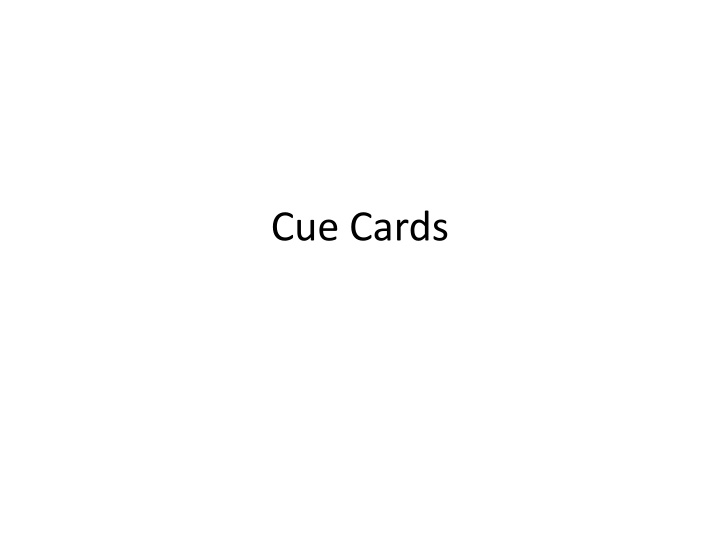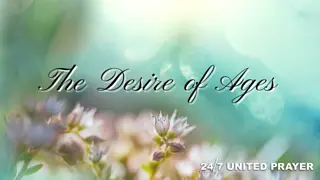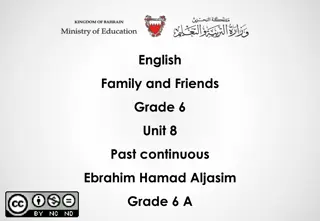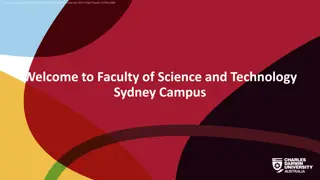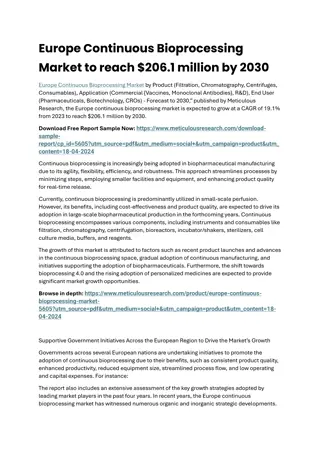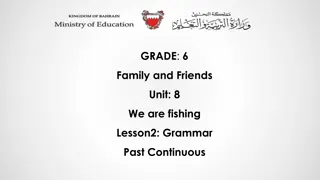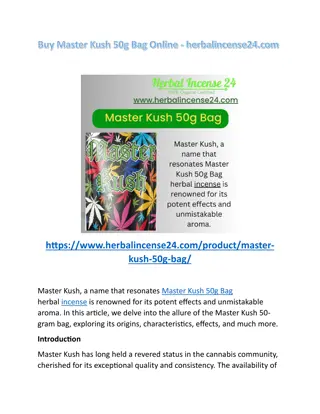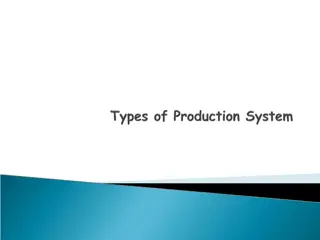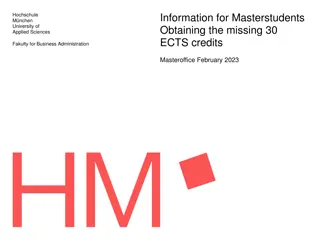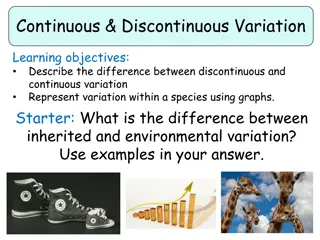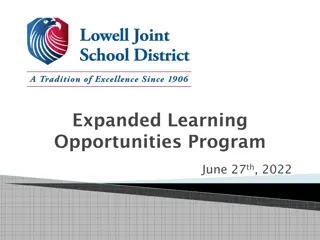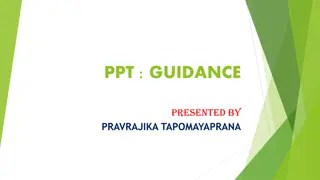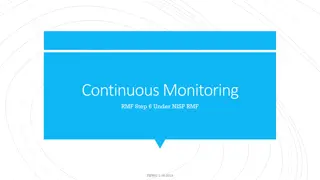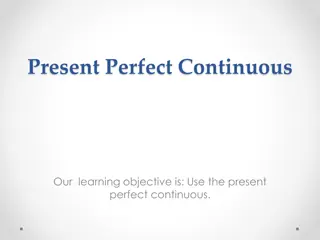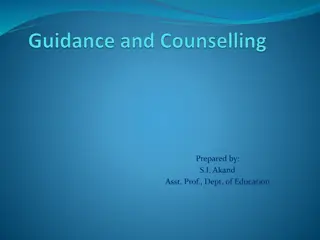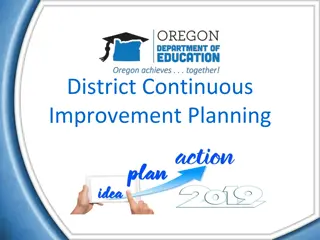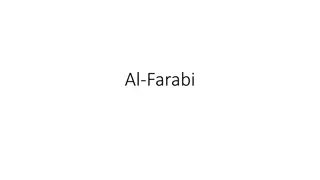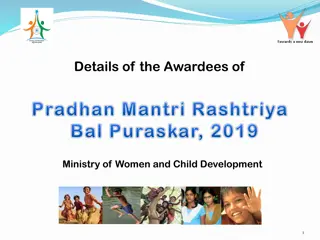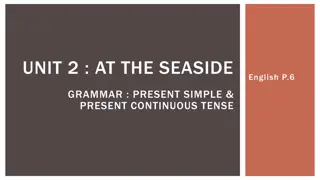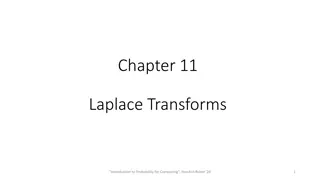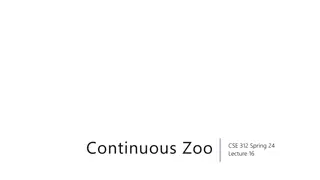Ignorant Master's Guidance & Continuous Learning
In this compilation, various pedagogical philosophies are explored, emphasizing continuous learning, collaborative teaching, and validation of diverse perspectives. Ideas of freedom in education, participatory epistemology, and socially just classrooms are discussed, highlighting the importance of critical thinking, inclusivity, and nurturing the intellectual and spiritual growth of students.
Download Presentation

Please find below an Image/Link to download the presentation.
The content on the website is provided AS IS for your information and personal use only. It may not be sold, licensed, or shared on other websites without obtaining consent from the author.If you encounter any issues during the download, it is possible that the publisher has removed the file from their server.
You are allowed to download the files provided on this website for personal or commercial use, subject to the condition that they are used lawfully. All files are the property of their respective owners.
The content on the website is provided AS IS for your information and personal use only. It may not be sold, licensed, or shared on other websites without obtaining consent from the author.
E N D
Presentation Transcript
This is the way that the ignorant master can instruct the learned one as well as the ignorant one: by verifying that he is always searching. Whoever looks always finds. He doesn t necessarily find what he was looking for, and even less what he was supposed to find. But he finds something new to relate to the thing that he already knows. What is essential is the continuous vigilance, the attention that never subsides without irrationality setting in something that the learned one, like the ignorant one, excels at. The master is he who keeps the researcher on his own route, the one that he alone is following and keeps following. (Ranciere, 1991, The Ignorant Schoolmaster)
In Sentipentsante (Sensing/Thinking) Pedagogy, Rendn calls for a participatory epistemology, she seeks the union of the knower and what is to be known validating the knowing that occurs when the perceiver and the perceived are united as a single consciousness (p. 86) This means that we must find ways to change the linear model of teaching [and] focus on collaborative learning and dialogue that promotes critical thinking, interpretation, and diversity of opinion (1994, p. 62). For Rend n, the personal is the pedagogical and the pedagogical is the political. Rend n s theory takes an assets-based approach to understanding student success, and seeks to validate the students strengths and to change the educational environment into one that validates the rich knowledge, experience, and cultural perspectives that students bring to the classroom. (Book Review: Laura Rend n: Sentipentsante (Sensing/Thinking) Pedagogy)
To educate as the practice of freedom is a way of teaching that anyone can learn. That learning process comes easiest to those of us who teach who also believe that there is an aspect of our vocation that is sacred; who believe that our work is not merely to share information but to share in the intellectual and spiritual growth of our students. To teach in a manner that respects and cares for the souls of our students is essential if we are to provide the necessary conditions where learning can most deeply and intimately begin. Throughout my years as student and professor, I have been most inspired by those teachers who have had the courage to transgress those boundaries that would confine each pupil to a rote, assembly- line approach to learning. (bell hooks, Teaching to Transgress)
The Liberating, Socially Just Classroom (Abridged) An analysis of Jaffe s and Silveira s pedagogic philosophy, positionality, and strategies reveals what could be defined as a liberating, socially just classroom, which includes the following features: 1. The pedagogic focus moves away from over-privileging competition, individual achievement, and self-interests, in order to move toward an emphasis on relationships and the betterment of the collective whole. 2. Pedagogy promotes self-reflexivity and the emergence of a critically aware, socially responsible individual. The curriculum and learning activities promote skills for students to engage in political and social issues. 3. The curriculum is democratic, inclusive, and reflective of student back-grounds and needs. .4. Teaching and learning strategies attend to the education of the whole person. Students develop their intellectual capacities, yet also develop themselves as human beings. (Rend n, Sentipensante Pedagogy)
Learners are seen as in deficit, as needing help (Pember, 2001), and in short are identified as having problems that professionals have a responsibility to solve; thus effecting a professional contract of care (Avis, Bathmaker and Parsons, 2002). At the outset of their learning experience the learner s literacy capabilities are screened, diagnosed and tested to enable the effective design of their route through the curriculum. Within this set of constructions reading and writing are implicit to the range of skill that it is desirable for students to acquire as skills that are integral to classroom activities and assessment processes. The student is offered a stake in what is known but not in how it is known, who it is known by, whether it is worth knowing, or that there might be alternative ways of knowing. (Alex Kendall, Pedagogy of the Inexpert)
However, even if one engages in neatly organised forms of learning, there is always a risk. Not only is there a risk that you won t learn what you wanted to learn. There is also the risk that you will learn things that you couldn t have imagined that you would learn or that you couldn t have imagined that you would have wanted to learn. And there is the risk that you will learn something that you rather didn t want to learn, something about yourself, for example. To engage in learning always entails the risk that learning may have an impact on you, that learning may change you. This means, however, that education only begins when the learner is willing to take a risk. (Biesta, Gert, 2005, Against learning. Reclaiming a language for education in an age of learning. Nordisk Pedagogik, Vol. 25, pp.54 66. Oslo.)
If education is indeed concerned with subjectivity and agency, then we should think of education as the situation or process which provides opportunity for individuals to come into presence, that is, to show who they are and where they stand. What does it mean to provide such opportunities? It first of all requires a situation in which students, learners are indeed able to respond, are indeed able to show who they are and where they stand. This not only means that there must be something that they can respond to, that there is a situation in which learning is not confined to acquisition and copying. It also requires that educators and educational institutions care about what their students think and feel and where they are allowed to express their thoughts and feelings. (Biesta, Gert, 2005, Against learning. Reclaiming a language for education in an age of learning. Nordisk Pedagogik, Vol. 25, pp.54 66. Oslo.)
Parents send their children to school because they want them to be educated, but it is up to the professional judgement and expertise of the teacher to make decisions about what this particular child actually needs. Here lies a fundamental difference between what we could call the market model and the professional model. As Feinberg (2001, p. 403) explains: In market models consumers are supposed to know what they need, and producers bid in price and quality to satisfy them. In professional models the producer not only services a need, but also defines it. The idea that education should be about meeting the needs of the learner is also problematic because it suggests a framework in which the only questions that can meaningfully be asked about education are technical questions, that is questions about the efficiency and the effectiveness of the educational process. (Biesta)
Teaching and learning happens every day and every time we talk together, share theories, create ideas and concepts, and co-construct knowledge in the public project that draws us together inquiry into course content. Entangled with these relations and practices is a commitment to minimising harm to students. Our relation isn t just one of transmitting knowledge, getting information inside them, improving their employability skills or increasing their sum total of graduate attributes. It is a relation of care and concern, played out primarily though the joint endeavour of getting to know some particular content or topic better, sometimes in relation to subject and discipline, sometimes in relation to the ordinary, everyday things that matter to us and perhaps sometimes too in relation to those things that students choose to tell us about their lives outside as well as inside the walls of the university. (Carol A. Taylor (2016): Ethically important moments in the higher education space of appearance: Renewing educative praxis with Arendt, Educational Philosophy and Theory)
